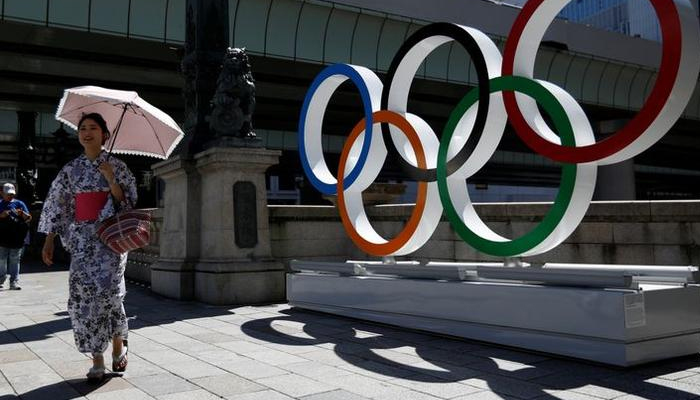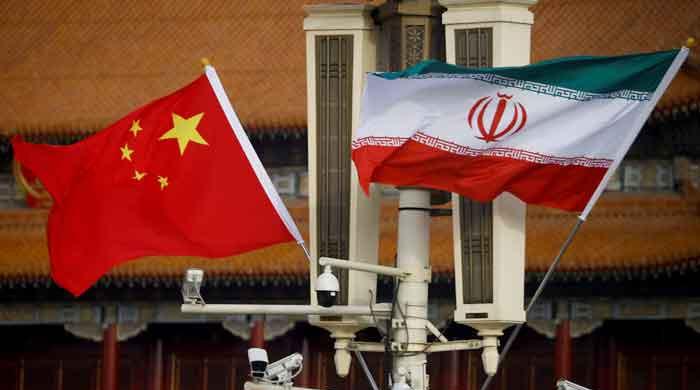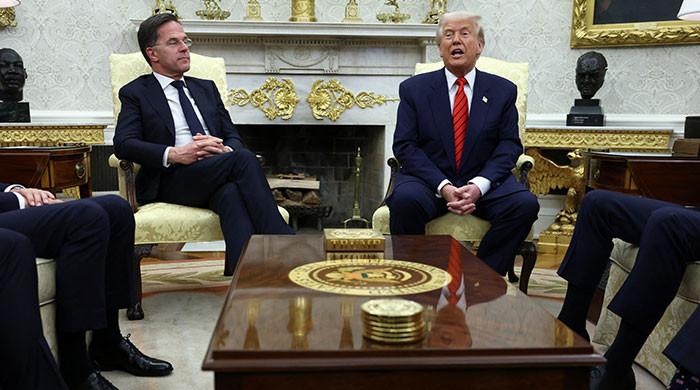2020 Tokyo Olympics: Flawless and coronavirus-free or hiccuping to a stop?
Japan is known for meticulous planning; so what has it done to ensure safety and security amid coronavirus fears?
February 28, 2020

Japan faces the daunting task of ensuring coronavirus-free Tokyo Olympics 2020, with the clock ticking fast as a countdown to the July-August event has already started.
To the utter disappointment of Japan, the number of coronavirus patients continue to rise at this crucial time. Although the fatalities figure is still in single digits, the outbreak is far from being controlled — enough to raise alarm.
A number of smaller events — including volunteer training — have already been affected.
The Olympic Torch Relay is set to commence on March 26 and will travel through all 47 prefectures in Japan. It is a race against time to guarantee that ‘Hope Lights Its Way’. This is only possible if every Japanese citizen shares their light in the most responsible manner.
Pushing the Relay date would be a very bad omen as such a step may further strengthen voices that seek postponement, a change of venue or even cancellation. London Mayoral candidate Shaun Bailey has already cast doubts on Japan’s ability to deal with the deadly disease.
Bailey went as far as to suggest that "given the ongoing disruption caused by the coronavirus outbreak, I urge the Olympic Committee to seriously consider how London could stand ready to host the Olympics, should the need arise".
London does have the infrastructure and experience required for the huge event; after all, it had hosted in 2012.
But Bailey’s indication is more political than realistic. As expected, it has drawn wide criticism from all tiers of the Japanese society.
Days before the outbreak of the deadly disease, I visited some of the iconic venues where the grand games will be played and saw Tokyo 2020 Organizing Committee members meticulously executing their tasks.
As I talked to the Engagement Bureau, none of the staff could expect a calamity such as the novel coronavirus. However, being the inhabitants of the land of natural disasters, they were preparing for many unforeseen scenarios.
The Tokyo 2020 Organizing Committee is working under former prime minister Yoshiro Mori's leadership. Mori is a seasoned politician who became the premier after long serving as a minister of education, international trade, and construction; he is also a sport enthusiast and especially loves rugby.
His spokesperson, Masa Takaya, said Mori was "committed to inspire the young generation and leave the world as a host of lasting legacies as well as demonstrate that sport has the power to change the world and our future".
The games of the XXII Olympiad will be played from July 24 to August 9, following which the Tokyo 2020 Paralympic Games would commence, set to conclude on September 6.
In total, 33 sports events — including five additional ones: Karate, Surfing, Baseball/Softball, Skateboarding, and Climbing — are planned for the Olympics. Of these, skateboarding, climbing, and surfing are especially popular among younger generation.
The 1964 Tokyo Olympics had surely transformed Japan and the 2020 iteration seems to be revolutionising it. The National Stadium — used as the previous Olympic event's main venue — has been rebuilt to host the opening and closing ceremonies.
The majestic Imperial Garden would blend natural beauty with history.
An ultra-modern, 44-hectare "Athletes' Village" is almost ready in the breathtaking Minato Mirai waterfront district; it would later be renovated and sold as apartments.
The Pakistani contingent would be dearly hosted by Suginami City, where Mayor Ryo Tanaka is ready to welcome the squad with open arms.
Japan is known for meticulous planning.
So no wonder that the game-related objects are designed with added symbolic value. The seamless Torch Relay, which appears to resemble a cherry blossom, is made by recycled aluminium; it is also a reminder of the reconstruction of the disaster-affected area of the 2011 Tohoku earthquake and tsunami.
The gold, silver, and bronze medals are developed in a classical eco-friendly style, with 79,000 tonnes of discarded electronic devices — including smartphones, digital cameras, and laptops — collected to extract the precious metals.
Now, each medal would not only be a recycled product but also a contribution from the citizens of 1,594 municipal authorities across Japan.
The mascots signify the soul of the elementary school kids.
The Olympic Mascot Miraitowa reflects a future full of eternal hope in the hearts of people all over the world, whereas the Paralympic Mascot Someity has even more powerful meanings. Those who have overcome every obstacle to tower above the gifted ones are termed "so mighty".
Once in Tokyo, both the athletes and fans were expected to equally enjoy the most innovative technology. Robots would assist spectators in providing information and guiding them to their seats in the stadiums.
My visit to NEC Corp allowed me a first-hand experience of the face recognition system, a technology that would be employed in the Olympics for the first time to verify the identity of athletes, officials, and media fraternity. It will not only save time but also provide security.
2020 Summer Olympics Engagement Bureau Executive Director Maki Kobayashi said Mori had "formed a formidable scrum for the successful delivery of the games". The event was aimed to achieve personal best, unity in diversity, and connecting to tomorrow.
In an exclusive interview, former world karate champion Katsutoshi Shiina said his country was known for its reliable delivery. And the world is about to witness that at its peak.
Back in Karachi, I asked Deputy Consul General Katsunori Ashida and his boss, Toshikazu Isomura, how concerned they were about the coronavirus outbreak and if they feared that years of their efforts may turn to dust.
Both burst into laughter. "Be ready to witness a flawless and spectacular Olympic," Isomura said.
"And don’t forget to entertain your taste buds with the finest cuisine," quipped Ashida.
That only added to what the Olympic Committee made clear earlier: There is no ‘Plan B’ and the games would start on time.
As the Pakistani squad gets ready to fly, the nation too keeps its fingers crossed that the healthiest activity will be held coronavirus-free as well. Bon voyage and good luck to the Pakistani athletes!











